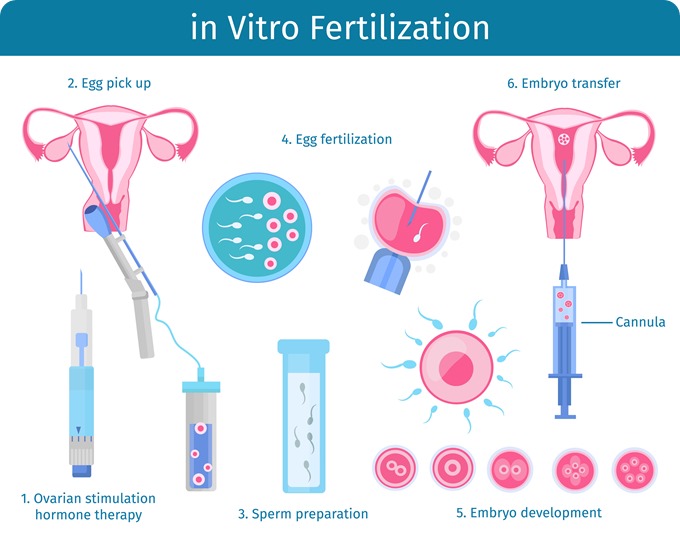
The IVF and the Chance of Getting Pregnant
Most couples seek medical advice after 1-2 years of trying to conceive, which is the second most common reason for women to visit their gynecologist, after pregnancy. If left untreated, infertility can result in stress, depression, and emotional distress. The possibility of becoming pregnant decreases as the couples age and the average age of women seeking fertility treatment has increased over the last 20 years time. With the advent of In Vitro Fertilisation techniques, many couples hopefully start their families, while the chance of success of IVF again falls sharply as a woman's age crosses 40. Nevertheless, aging has shown to be one robust factor in predicting the success of IVF Treatment.
What is IVF?
InVitro Fertilisation is the process that involves fertilization of an egg with the sperm outside the body, that is in the laboratory. It is a multi-step process, which involves the following stages:
• Administering Fertility medication to stimulate the ovaries
• Giving Trigger injection
• Egg and sperm collection
• Embryo growth in lab
• Embryo implantation
The success rate for IVF
Spending a huge amount for this treatment procedure, definitely make you wonder if it will work for you. IVF success is dependent on a number of factors, some of which you can have little control over, and many of which are specific to you personally. Some of these factors include your age, the reasons for infertility, whether or not donor eggs or sperms will be used, previous pregnancy, lifestyle habits, and the competency of the IVF clinic or lab. Generally, in India, the success rate varies between 40% to 60% in most of the cases.
The good news is that IVF is generally successful, especially for women under two categories:
• They should be under the age of 35
• They should use donor eggs
The success rates of each IVF cycle generally depends on a woman's age and as a woman gets older, the IVF success rates go down if she's using her own eggs. However, a 40-year-old woman still has around 10,000 eggs, which is just 3% of the original 300,000 present during the onset of puberty.
The frozen cycles of IVF tend to have a higher success rate as the embryos that survive the thawing process will be more robust, resulting in higher chances of achieving a pregnancy. Donor eggs and sperm from a younger donor who is medically fit and tend to give better success rates.
Number of IVF cycles to be planned
The odds of success improve if you can do more than one IVF cycle, although practically it is difficult for the couples to proceed, the high cost of IVF plus the psychological distress experienced by the couples makes multiple IVF cycles a tough prospect. According to a study, it has been found that women who conceived with IVF treatment went through an average of 2.7 cycles. They also found that the odds for success for women of all ages improved after three IVF cycles.
If you have planned to undergo IVF treatment in gurgaon, to start your family, step ahead to Sunrise IVF where we provide a one-stop solution to your infertility problems and increase your chances of getting pregnant with the minimum number of cycles.